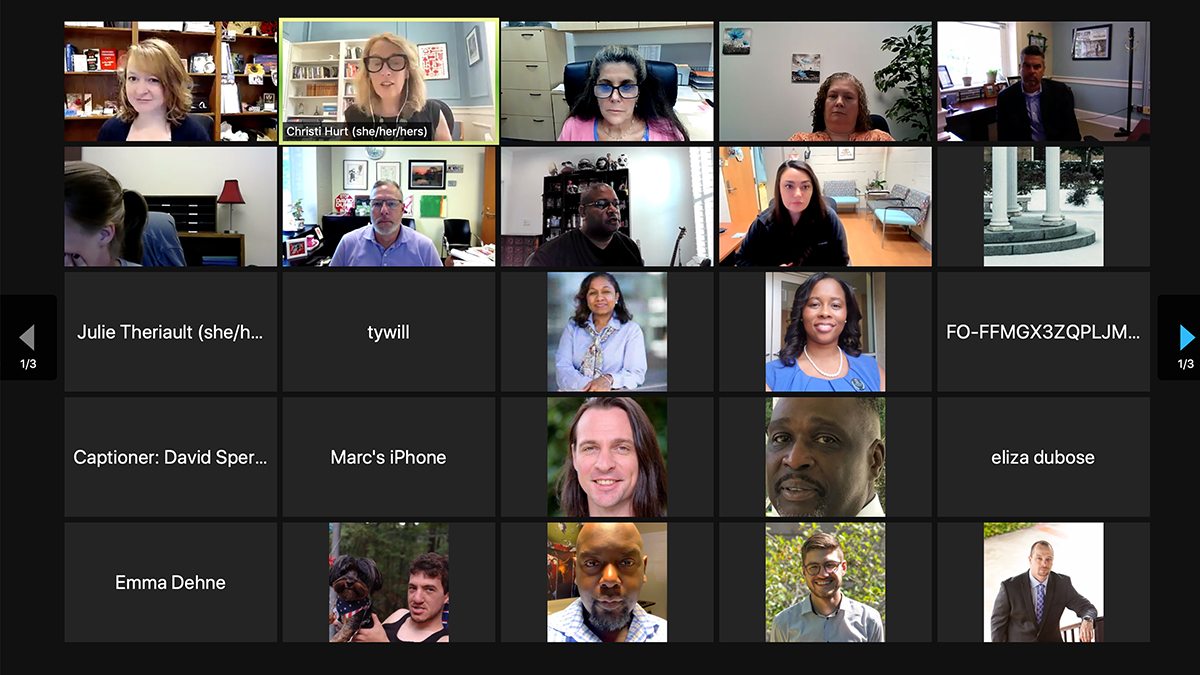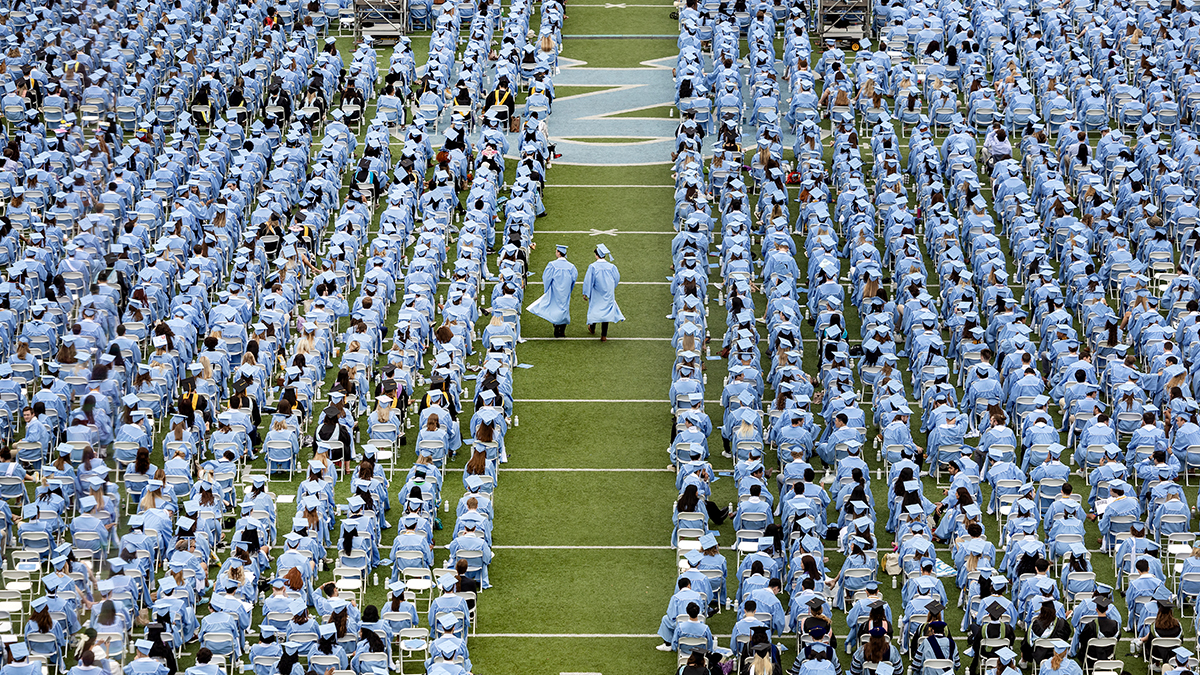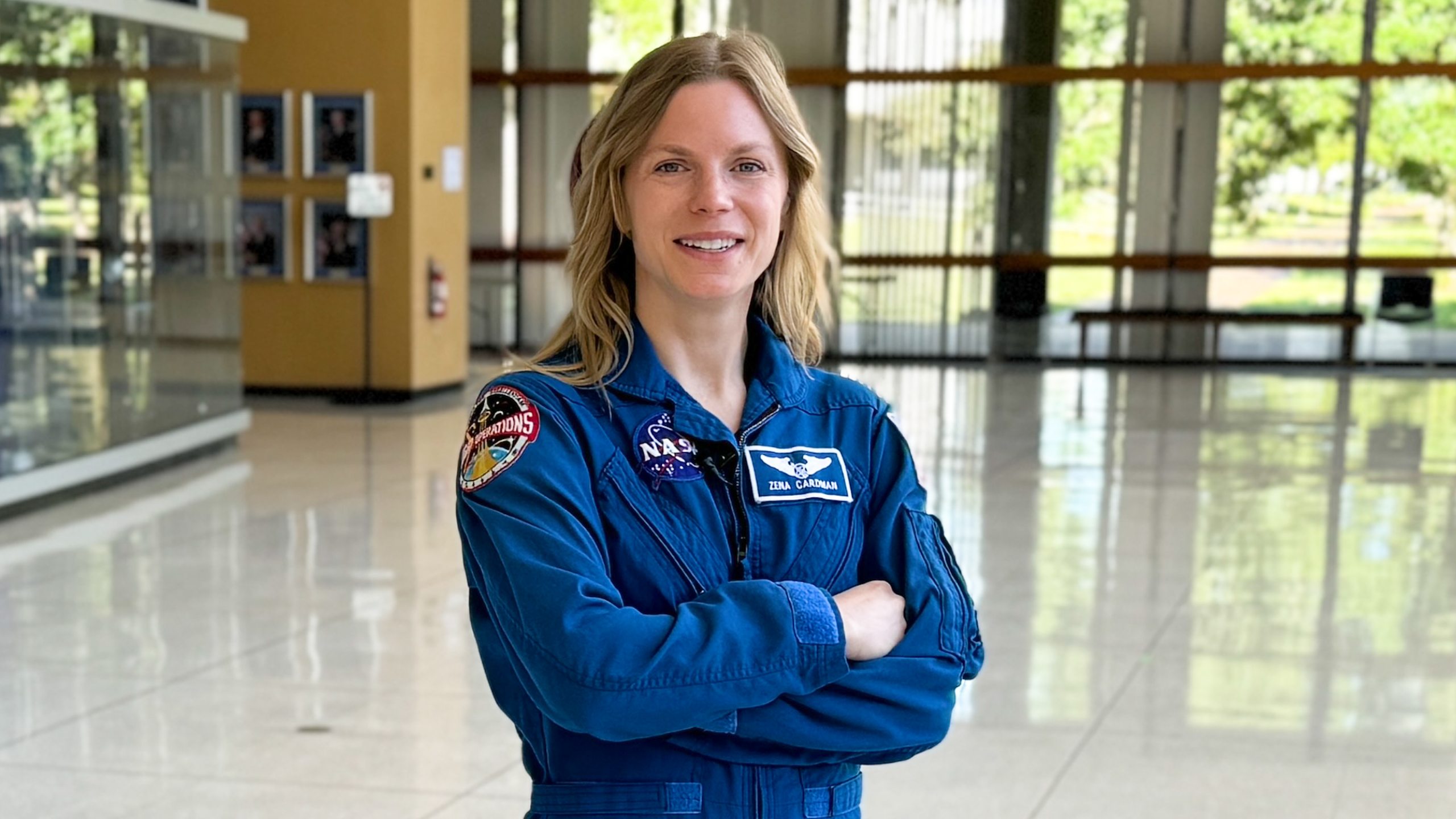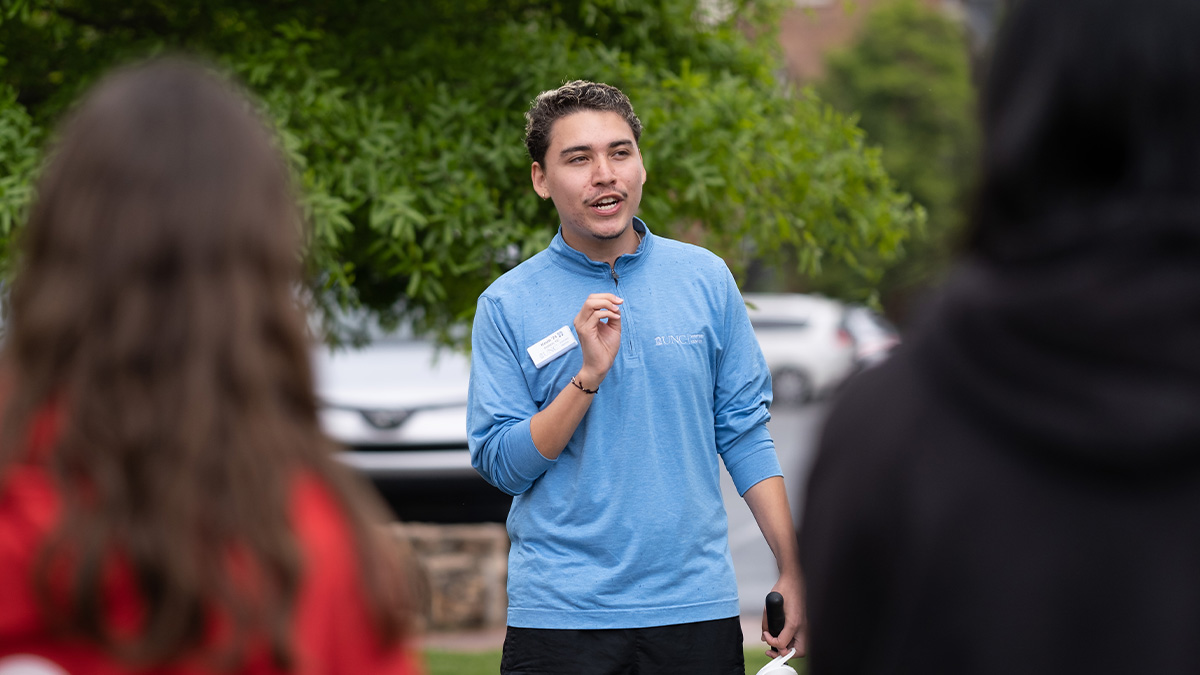Employee Forum: raises, retention and 5-year transit plan
Delegates at August’s meeting learned when paychecks will include a 3.5% salary increase and what other budget provisions aim to improve recruitment and retention.

The Employee Forum’s first meeting of the 2022-23 academic year featured conversations on the University’s five-year transit plan, a timeline for a 3.5% salary increase and potential one-time hiring and retention bonuses stemming from provisions in the new state budget.
Chancellor’s roundtable
Chief of Staff Christi Hurt updated delegates on behalf of Chancellor Kevin M. Guskiewicz. The Aug. 15 start date for classes is earlier than usual to make room for two Well-Being Days in the fall semester and three in the spring, Hurt said.
“That’s why it feels a little strange to be churning up the engine so early in August because there are ways this will pay off for us as we take some breathers throughout the academic year,” said Hurt.
Hurt recapped recent University and state news that will impact employees going into the new academic year including:
- New members of campus leadership that includeKamrhan Farwellas the new vice chancellor of communications, Gillings School of Global Public Health’sBeth Mayer-Davisbecoming new dean of The Graduate School,Brian Jamesas police chief and others.
- A newstate budgetto start the school year that includes employee raises and funding for theSchool of Data Science and Society, to be led by Stan Ahalt.
“Starting the year with a full leadership team, the state budget and kicking off a new school … there are some victories here, reasons to be joyful and reasons to be proud,” Hurt said.
Hurt added this year will not be without challenges, saying the University is preparing to continue facing issues related to:
- Mental health, with the University keeping its contract with telehealth provider Uwill to eliminate waitlists from last year and hiring a mental health counselor in the Multicultural Health Program at Counseling and Psychological Services.
- The admissions case, with Supreme Court arguments to be heard this fall and a decision coming next year. Hurt referred delegates to the University’scase websitefor more information.
- Violence prevention, which Hurt said will be fortified this fall with a fully staffed team ofgender violence service coordinatorsto provide report and response assistance and lead programs such as the Be That Friend campaign and Helping Advocates for Violence Ending Now (HAVEN) training.
Transportation and parking update
Cheryl Stout, executive director of transportation and parking, spoke about ordinance updates and the University’s process regarding itsfive-year transit plan.
Over the next year, the University will collect data, develop an advisory committee and hire a firm to lead the effort (August to October), conduct campus outreach to develop recommendations (November to April) to develop recommendations and manage a communication and implementation plan (May through August).
Stout mentioned minor changes to the University’s parking ordinance adopted on Aug. 1:
- Allowing e-bikes on sidewalks.
- Adding flex parking fees.
- Requiring a valid front license plate to back in or pull-through park.
SEANC update
Mark Dearmon,State Employees Association of North Carolina’s public education committee chair, joined the meeting’s Zoom call to explain SEANC’s mission and encourage interested delegates to join to increase influence in the legislature on behalf of all state employees and retirees.
“We’re disappointed with this year’s budget. It was a good budget, but it could have been a whole lot better,” said Dearmon.
Ardis Watkins, SEANC’s executive director, reiterated the current situation for state employees, including a vacancy rate between 20% and 30%.
In response to Watkins’ request for suggestions for change, delegates spoke about shrinking candidate pools, recruiting vs. retention, static salaries and losing institutional knowledge to the private sector.
“We are posting positions that normally would garner 50 to 60 applicants, and we’re getting maybe five or six. It’s very difficult when you’re getting pools that low,” said Shayna Hill, a former Employee Forum chair. “I’ve been at UNC for 15 years. We’ve seen stagnant salaries; we’ve seen almost a decade where there was no raise and then we saw dwindling benefits. To think that’s not going to have an impact on whether people want to work here I think is folly. I think we’re at a crisis point.”
Many delegates echoed Hill’s statement in the comments and shared their own perspectives and challenges on attracting and retaining talent in a tumultuous hiring market, saying state benefits are not competitive enough and salary ranges are not on par with market rates.
HR update
Linc Butler, associate vice chancellor of human resources, broke down how the new state budget will impact employees’ salaries and answered questions about the implementation of new raises. Employees paid biweekly will see the increase in their Aug. 12 paycheck and those paid monthly on Aug. 31.
The raise will be retroactive to July 1, calculated from the June 30 salary.
Butler spoke about some new provisions in the budget:
- A discretionary one-time EHRA bonus provision.
- An optional program for employees to sell back bonus leave.
- A labor market adjustment reserve, which provides 1% of each institution’s payroll state funds to be used for addressing targeted salary adjustments.
- A new SHRA program that allows for a sign-on bonus in the recruitment and hiring process and one-time retention bonuses. It provides for bonuses up to $2,500 paid in one installment, with anything over that amount paid in two installments within an 18-month period.
“Given that we’ve never had this kind of program before, we’re very excited that we actually have one now that we can use to try and help with some of the issues we’re seeing around campus, both on the recruitment and hiring side but also on the retention side,” Butler said.
The general theme echoed throughout the meeting was concern about retention and the impact of the current career banding system on an already dwindling applicant pool.
“To my frustration and to all of your frustration, there’s no movement on the SHRA career banding salary ranges,” Butler said, adding how the UNC System Office and human resources continue to push on that front. “It’s created so many challenges for us.”
Butler mentioned the recently implementedpersonal observance leaveas a “win” and reminded delegates of the Aug. 31 deadline toprovide documentation of receiving a COVID-19 boosterto get an extra eight hours of paid leave (which would expire March 31, 2023).




